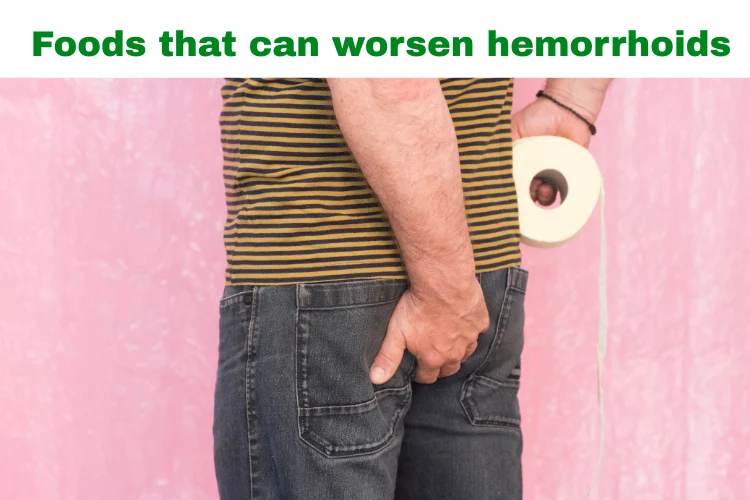Introduction
Dealing with hemorrhoids, can be uncomfortable and sometimes painful. While treatments like medications and lifestyle changes can help manage symptoms, your diet plays a major role in either relieving or worsening the condition. Knowing what foods to avoid can prevent irritation, reduce inflammation, and support smoother bowel movements.
In this blog, we’ll highlight the top food items to avoid when you have piles and why eliminating them from your diet can make a difference in your recovery and comfort.
Why Diet Matters in Piles Management
The main cause of discomfort from piles is due to straining during bowel movements, often resulting from constipation. A poor diet—especially one low in fiber and high in processed or spicy foods—can aggravate symptoms. Avoiding certain foods can ease digestion and prevent further irritation of hemorrhoids.
Foods to Avoid When You Have Piles
1. Low-Fiber Foods
Low-fiber foods can lead to constipation, making stools hard and difficult to pass. Examples include:
- White bread and white rice
- Processed cereals
- Pastries and cakes
Choose whole-grain alternatives instead, which promote bowel movement regularity. A high-fiber diet helps to soften stools and encourages smoother bowel movements, significantly reducing the risk of aggravating hemorrhoids.
2. Spicy Foods
Spicy foods such as chili powder, black pepper, and hot sauces irritate the digestive tract and exacerbate anal pain. If you have already painful or bleeding piles, spicy food might enhance burning in bowel movements. Regular intake of spicy food also causes acid reflux or indigestion, aggravating piles.
3. Fried and Fatty Foods
Fatty foods such as fried chicken, burgers, and fried snacks delay digestion and may cause constipation. They are also not rich in nutrients and fiber. The high oil content makes the foods hard to digest, and their absence of fiber directly causes harder stools.
4. Dairy Products
Although not deleterious to all, milk has a bloating and constipation effect in others. Culprits commonly are:
- Cheese
- Whole milk
- Ice cream
If you experience digestive discomfort after eating dairy, try switching to lactose-free or plant-based options. Probiotic yogurt can be a better option since it promotes gut health.
5. Red Meat
Red meat like beef and lamb is more difficult to digest and has less fiber. Consuming huge amounts may result in slow digestion and tougher stools, which raise the danger of piles flare-ups. Red meat’s iron content can also cause constipation.
6. Caffeinated Beverages
Beverages such as coffee, tea, and sodas are diuretics and can cause dehydration. Decreased water in the body leads to harder stools, which exacerbate hemorrhoid symptoms. Restricting caffeine ensures that the body has sufficient moisture to maintain a healthy digestive system.
7. Alcohol
Alcohol dehydrates the body and can disrupt normal bowel movements. It may also impair digestion and increase pressure in the rectal area, making piles worse. Excessive alcohol consumption can inflame blood vessels and increase the risk of bleeding piles.
8. Processed and Packaged Foods
Packaged foods such as chips, frozen meals, and ready-to-eat meals tend to be rich in preservatives, salt, and fat. They are low in fiber and can have additives that irritate the digestive system. They are not only low in nutritional value but also cause constipation and bloating.
9. Sugary Foods and Desserts
High-sugar foods such as cookies, candies, and sweetened beverages offer little nutritional benefit and can lead to constipation when consumed in excess. They may also contribute to obesity, which increases pressure on rectal veins and worsens piles.
10. Artificial Sweeteners
Some artificial sweeteners may worsen hemorrhoid symptoms by causing gas, bloating, and digestive distress. Look for ingredients like sorbitol and aspartame on the labels of diet sodas, gums, and sugar-free snacks.
Additional Dietary Tips for Piles Relief
- To stay hydrated and soften stools, consume 8 to 10 glasses of water every day.
- Incorporate foods high in fiber, such as whole grains, legumes, seeds, fruits, and vegetables.
- To keep your digestive system from being overworked, eat smaller, more frequent meals.
- Steer clear of overeating, which can raise lower abdominal pressure.
- Reduce your intake of caffeine and alcohol to maintain regular bowel movements.
Piles Prevention: Diet & Lifestyle Tips for Healthy Bowel Movements
FAQs About Piles and Diet
1. Can spicy foods cause piles?
Spicy foods don’t directly cause piles but can worsen symptoms by irritating the anal area.
2. Are dairy products bad for hemorrhoids?
For some, dairy can lead to constipation, making hemorrhoid symptoms worse.
3. What drinks should I avoid with piles?
Limit coffee, tea, soda, and alcohol as they can cause dehydration and harder stools.
4. Is red meat okay to eat during piles?
Red meat is best avoided or limited as it is low in fiber and hard to digest.
5. What is the worst food for piles?
Processed, low-fiber, and fried foods are among the worst for managing piles.
6. Can a poor diet cause piles to recur?
Yes, consistently poor eating habits can trigger repeated flare-ups.
Conclusion
Managing piles effectively involves more than just medication—it requires the right dietary habits. By avoiding foods that contribute to constipation, irritation, and inflammation, you can minimize discomfort and speed up recovery. Focus on a high-fiber, well-hydrated diet to keep symptoms at bay and improve your overall digestive health. A few mindful choices in your daily meals can bring significant relief and prevent future flare-ups.
Suffering from piles? Book a consultation with our digestive health expert today and get relief that lasts.




